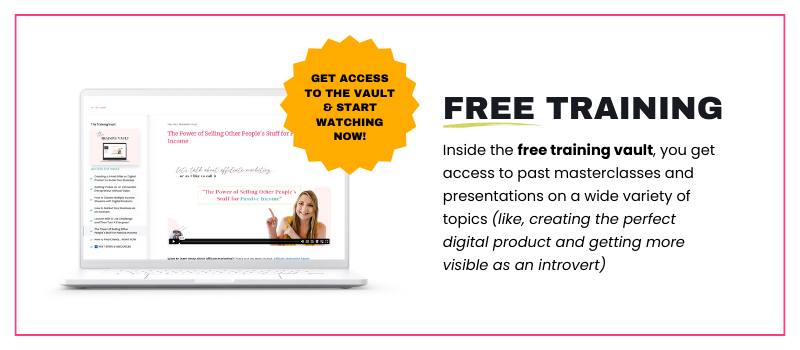Struggling to get the results you want from your emails?
Discover 15 simple yet powerful ways to elevate your email marketing and start seeing real engagement!
Grab your freebie!
Blog Categories
Helping small business owners, virtual assistants, and creative entrepreneurs grow their business.
Hi, I'm Tara! I'm a multi-passionate business and marketing coach.
learn more + get a copy:
Last Updated on October 13, 2025 by Tara Reid
Let’s talk about something that’s been on my mind recently – unethical marketing examples. You know those tactics that make you feel kind of icky or manipulated? We’ve all come across them at some point.
Disclaimer: I earn from qualifying purchases. Some of the links on my website are affiliate links, which means, at no additional cost to you, I will earn a small commission if you click through and make a purchase.
As someone who believes in doing things the right way and building a business based on trust, it’s important to shine a light on these bad practices. After all, shouldn’t honesty be at the heart of what we do?
In this post, I’m going to walk you through some real-world marketing gone wrong. We’ll dive into deceptive ads, misuse of social proof, and even some privacy issues that cross the line.
By the end, you’ll have a clearer understanding of what to avoid in your marketing efforts so you can create a business that not only feels good but also does good.
Deceptive Advertising Practices
Let’s dive into some of the most common deceptive advertising practices that we, as honest marketers, should steer clear of. These tactics not only erode consumer trust but can also land businesses in hot water with regulatory bodies.
False or Exaggerated Claims
First up, let’s talk about deceptive advertising. These are the ads that make big promises but fail to deliver – and trust me, they’re more common than you might think.
One of the most memorable examples is the Reebok EasyTone shoes. Reebok claimed their shoes would tone and strengthen your legs just by wearing them.
Sounds amazing, right? Well, not exactly.
It turns out these claims weren’t backed by any scientific evidence, and as a result, Reebok had to pay out $25 million in refunds to customers. Ouch.
Another classic case is Nivea’s My Silhouette! skin cream. They claimed it could actually reduce body size.
Spoiler alert: it couldn’t.
This kind of misleading advertising not only damages consumer trust but can also result in hefty fines and legal troubles.
So, here’s the takeaway: making bold claims might seem tempting, but unless you’ve got solid proof to back them up, it’s just not worth it. Your audience deserves transparency, not tricks.
Hidden Fees and Charges
Oh, hidden fees. These can seriously ruin the customer experience.
Have you ever been excited about a product or service, only to find sneaky charges tacked on at checkout? It’s frustrating, right?
Take food delivery apps, for example. At first glance, the delivery seems like a great deal, but suddenly there’s a subscription service you didn’t know about, or hidden fees for using your credit card. It feels like a bait-and-switch, and it leaves customers feeling cheated.
Even in restaurants, we’re seeing this trend. Some are now adding credit card fees of up to 5%, which feels unfair to customers who prefer the convenience of using their card. Sure, businesses may have their reasons, but from a customer’s perspective, these extra fees feel sneaky.
If we want to build trust with our audience, we have to be upfront about costs. Hidden charges? They’re a no-go.
Bait-and-Switch Tactics
Let’s talk about bait-and-switch – a tactic that’s unfortunately still pretty common. This is when a business advertises a fantastic deal just to lure you in, but once you’re there, that deal magically disappears. Instead, they try to sell you something more expensive.
For example, a store might promote a product at a super low price, but when you show up, you’re told it’s sold out. Then, of course, they push you toward a more expensive option.
It’s manipulative and plays on the idea that you’ve already invested time, so you might as well buy something. This tactic can quickly erode trust and drive potential customers away. If we want to run ethical businesses, we need to stay far away from strategies like this.

Using Fear-Based Marketing
Fear is a powerful emotion, and some marketers use it as a tool to motivate people to take action. While fear-based marketing can be effective, it’s a double-edged sword that can easily backfire and damage a brand’s reputation.
I’ve noticed that fear-based campaigns often use dramatic imagery, emotional language, and alarming statistics to create a sense of urgency. They tap into our basic survival instincts, activating our fight or flight response. However, when these tactics go too far, they can cause anxiety and fear in consumers, which is harmful to their mental health and well-being.
It’s crucial to understand that while fear can motivate action, it can also lead to negative associations with your brand. Instead of resorting to fear-mongering, we should focus on providing clear, actionable solutions to real problems our audience faces.
Manipulative Social Proof Techniques
As marketers, we know the power of social proof – those glowing reviews and testimonials that help build trust with potential customers. But when social proof is manipulated, it’s a different story. Unfortunately, the rise of fake reviews has made it harder for people to trust what they read online.
Fake Reviews and Testimonials
Did you know that about 30% of online reviews are fake? That’s a staggering number! What’s worse is that most people have probably read a fake review without even realizing it. This manipulation can lead to poor purchase decisions and ultimately damage both consumers and honest businesses.
Astroturfing
This sneaky tactic involves companies creating fake online personas or hiring people to write positive reviews or comments. It’s all about faking grassroots support for a product or idea.
A well-known example of this was the Cambridge Analytica scandal, where data was used to manipulate public opinion during the 2016 U.S. presidential elections. It’s a pretty stark reminder of how powerful – and dangerous – these tactics can be.
Inflated Social Media Metrics
You’ve probably come across businesses or influencers with thousands of followers or likes that just seem a little too good to be true. That’s because sometimes, those numbers are artificially boosted with fake followers or bots.
Sure, it might look impressive, but it’s not genuine engagement. These vanity metrics might catch someone’s eye, but they won’t build lasting trust or meaningful connections with your audience.

Privacy Violations and Data Misuse
Data is a huge part of marketing. But with great data comes great responsibility. Misusing customer data is one of the fastest ways to lose trust and damage your brand’s reputation.
The Cambridge Analytica scandal I mentioned earlier is a perfect example of this. Millions of people had their data harvested without their knowledge, which was then used to influence their behavior. It was a massive invasion of privacy and left people feeling violated. As marketers, we need to be transparent about what data we collect, why we’re collecting it, and how we’re using it.
Respecting privacy and being upfront about your data policies is crucial to building trust with your audience. No one likes feeling like their personal information is being exploited, so let’s be clear and respectful about how we handle data.

Final Thoughts
Unethical marketing might give businesses short-term wins, but the long-term costs – both financially and reputationally – are just too high. By avoiding these underhanded tactics and focusing on transparency, honesty, and respect for your audience, you’ll not only build a more sustainable business but also foster deeper connections with the people who matter most: your customers.
Let’s keep our marketing ethical, real, and grounded in trust – because when you run a business that feels good, it shows. And isn’t that what we’re all aiming for?
Tara Reid is a multi-passionate business and marketing strategist for introverted entrepreneurs who want to grow without relying on hustle culture or social media. With 18+ years of online business experience, she helps course creators, service providers, and digital product sellers build sustainable businesses through evergreen marketing, blogging, SEO, Pinterest, and email.
As the founder of the Introvertpreneur Club, Tara’s mission is to show heart-centered entrepreneurs that you don’t have to be loud to be successful. You just need the right strategies that fit your personality.
When she’s not supporting clients or creating new resources, you can find her at home in Canada with her three rescue dogs, a cup of coffee in hand, dreaming up her next project.
The Introvertpreneur Podcast
listen in to the top rated business podcast that is designed for introverted entrepreneurs who want to grow + scale in a more sustainable and fun way!
Top rated podcast
This one's on me. Complimentary free stuff coming right up.
leaving so soon?
Look behind the curtain and see exactly what I do every week, month, and quarter, to market my business without social media (in under 5 hours per week)!
The Quiet Marketing Playbook
Take this free quiz and learn what your superpower is as an entrepreneur. You'll also get a curated list of my best resources and tips for using your superpower to your advantage!
What's your Introverted Superpower?
Best Free Resources:
dig into 'em now!
A business strategist and marketing coach who focuses on helping course creators, coaches, and service providers, build sustainable businesses without social media.
